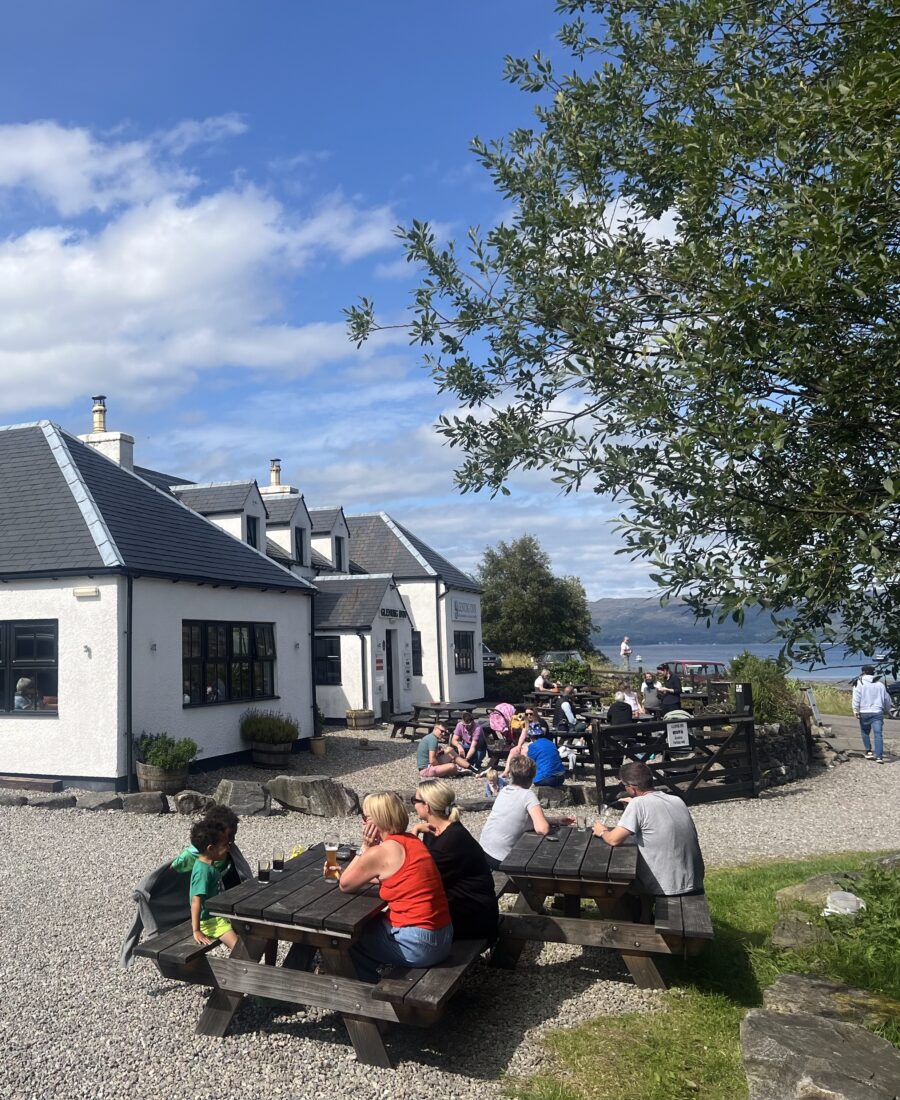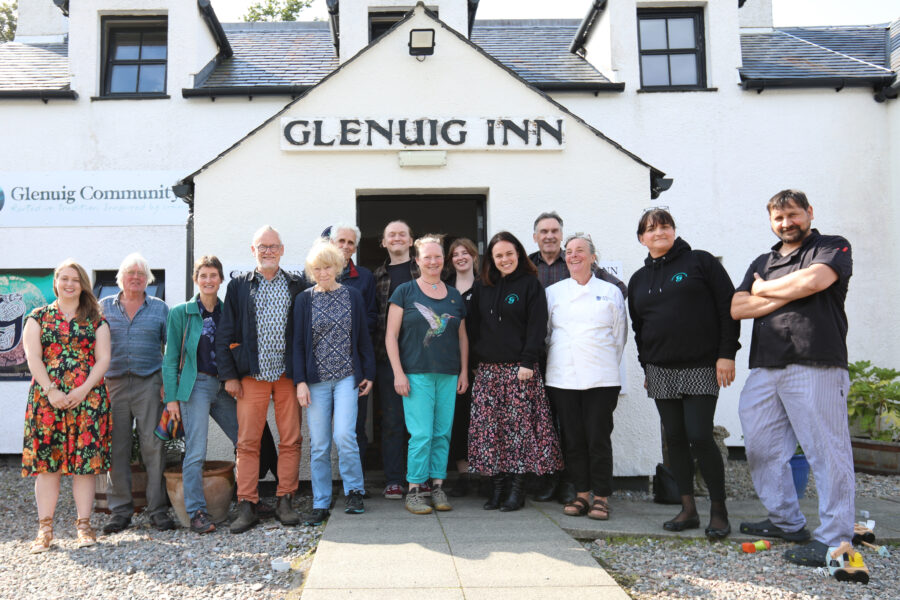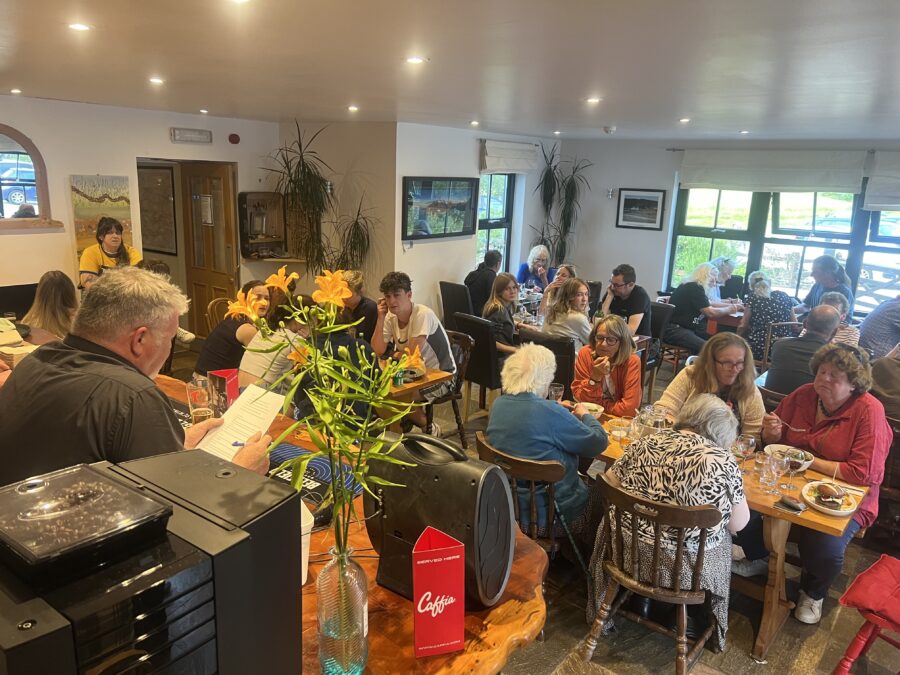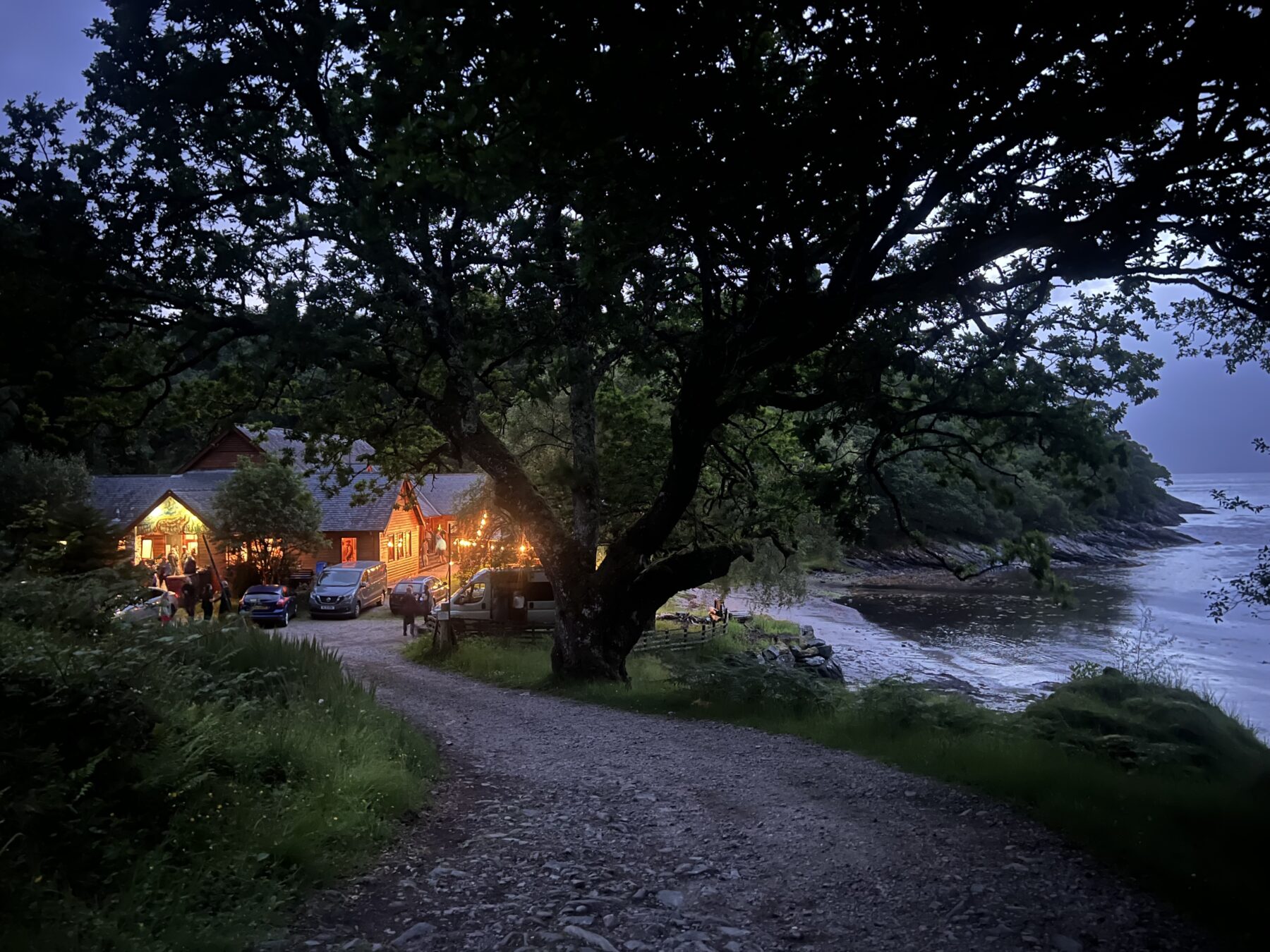Working with community clients, going through the rigours of seeking funding, you get some idea of the work that gets put in. But working with friends and neighbours in Glenuig and Roshven, in Moidart, off the Road to the Isles, as Committee Member not architect, to buy its local Glenuig Inn – not needing lots of architecture, at least in the near future – has been a revelation: as to the challenge, and the skills and capacity needed to address it, the forms to fill-in... and the dishes to wash.
Glenuig is a wee, historic, coastal community, with heartstopping views out to the Inner Hebrides and fantastic hills and seas to explore; and 182 dispersed homes but few jobs and homes for its young folk. But it has been, in recent years, hugely enterprising, in building, in the 1980s, a community owned-and-run Village Hall, that features on the Highland gig circuit and brings music and visitors; adding a community-run shop and history hut; and installing community wifi and running it and the moorings, all with the support of the local Glenuig Estate. The Inn, with its restaurant and 7 rooms, was an outlier, not always welcoming to locals but, in more recent years, built back up by a new owner who was keen to step aside and see it moved on to the Community.
We set out to buy it, with a Committee of 9 full of practical skills: accountancy, hospitality and cuisine experts, HR whizz, local builder, craft and graft. I brought some knowledge of how these things get funded, and how to advocate our worth.


Gathering Support
We gathered the community together and forged alliances, with local government and third sector partners, from the Plunket Foundation who helped kick-start our efforts, and then to the Scottish Land Fund at Stage 1 where we were turned-down. We picked ourselves up and applied to the Highland Council for Regeneration funding, then engaged Community Enterprises for Business Planning and various organisations to train us to define, polish and launch our Community Shares Offer; then the Development Trust Association of Scotland and Highlands and Islands Enterprise in assisting and advising us in our eventual, triumphant return to the Scottish Land Fund for Stage 1 then their principal Stage 2 capital funding. In particular this “picking ourselves up” moment was key, as it coincided with the friendly owner wanting out, and insisting that we run the Inn full-time. This allowed us to demonstrate our industriousness, and also our resilience and business sustainability, to our key partners and funders - both in the Government and our local community. Plus the Committee’s readiness to roll up their sleeves and pull pints, wait tables and dishwash.
Triumph
Our pitch, which centred around our already-evidenced enterprise and competence, and the chance for us to demonstrate the potential of a near wholly-run community – a mainland Eigg – struck a chord, and our rough, late 2024 targets, of a huge but, we thought, with enormous effort, achievable £300,000 from our Community Share Offer, and a matching amount from the Government’s Scottish Land Fund, turned out to be spot-on, both confirmed on almost the same, happy, July ‘25 day. Much revelry ensued.


A Village Hub for Today and Tomorrow
The place, from being threatened with closure, is abuzz: turnover is above our projections and our Trip Advisor reviews through the roof – the benefits of co-ownership feeding through to the welcome and quality of our offer, cooking and community. We are full of music with weekly local sessions, with dozens of young people attending, and jazz evenings, and are planning for creating a music Hub encompassing the events at the Hall, leading, we hope, to Summer Festivals and the like.
Even more significant are the opportunities the Inn provides, to nurture future trade and employment that will keep our young people in the village: in produce, hospitality, sea and land touring and other, as yet to be understood activities. Our local and national politicians are noticing the village, pledging to support a further initiative for social homes, for future prosperity cannot be delivered without the complementary homes that young families will need. Currently the beauty of the surroundings and recent celebrity buy-ins have led to skyrocketing site values unattainable for the young. The momentum of the Inn takeover, and support from the key politicians for social housing – in particular the Deputy-First Minister, before she stands down – have linked with other support and momentum to provide a real prospect of a locally-owned social home provider and provision.




